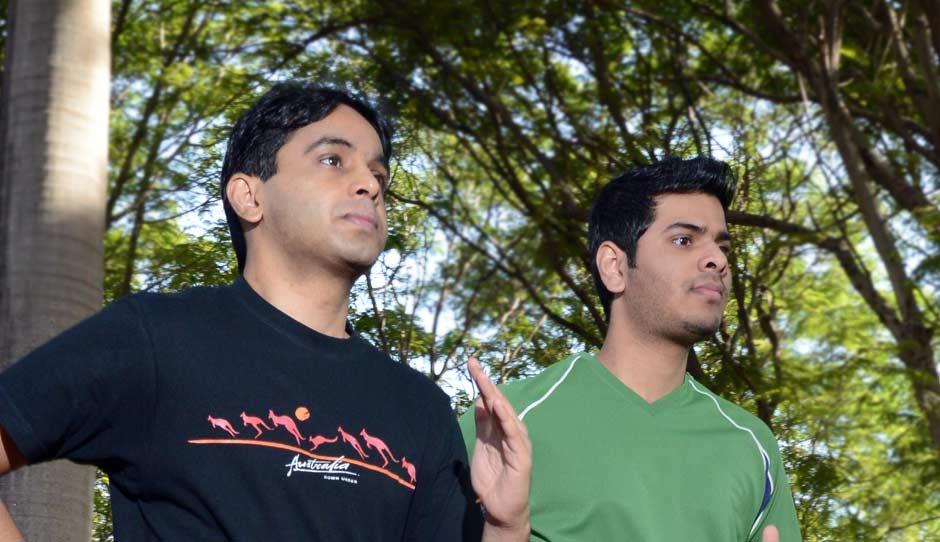How “Mild-OCD” Helps RoomsXML Book Growth
- BY Shreyasi Singh
 In Blog
In Blog 14399
14399 0
0

Brothers Ruchir and Anuj Bang don’t know what they would have been if they weren’t entrepreneurs. Doing anything else never seemed attractive or likely, the duo say. Fortunately, with building roomsXML, an online accomodation distribution system designed for travel companies, they have validated their belief that entrepreneurship was indeed a calling. In the past six years since Ruchir Bang, the elder of the two, founded roomsXML with his father Prakash Bang, the company has grown to nearly Rs150-crore in annual sales, has offices in India, United Kingdom, Australia and the US, and a real-time availability of an inventory of nearly 79,000 rooms (three-star and above) around the world. The brothers credit it to their easy rapport and shared work ethos, especially their “mild-OCD” attention to detail. Here, the brothers talk about that dynamic, and the management style they’ve cast roomsXML in.
Ruchir Bang: In 2007, when we started roomsXML, I was 25 years old. And, by then I had already been in business for more than six years with RupeeSaver, a reverse auctioning portal for consumer electronics with my father. Although the site had more than 1,00,000 subscribers at its peak, our revenue model unfortunately wasn’t sustainable. Plus, the cash outflow was quite high, and we pulled into my father’s savings account to fund the business. In 2000, we started speaking to some VC funds, and got some very attractive valuations. But, just as the deal was about to come through in 2001, the NASDAQ crashed and the dotcom bubble burst. So, we had to eventually close the portal. But, the experience with RupeeSaver and its closure was one of my biggest learnings, especially since that business was all I wanted to do. No MBA could have taught me those lessons. Although that company not working out did cost us a lot more than what an MBA programme in the US would have!
Just how old I was when RupeeSaver started, when roomsXML began, Anuj was just 18 years old. In the beginning, I had my hand in everything, and Anuj was really apprenticing. But, we realised soon he has a very analytical mind. I have more of a commercial mind. I’m more adept at financing and marketing. So, we started dividing responsibilities according to our natural strengths.
Anuj Bang: Over the past few years, these responsibilities have evolved quite neatly—now I look after all the back end (operations, product development, technology and inventory mangement). Ruchir looks after the front end, including marketing, business development, finance and HR. Because our roles have evolved this way, and we handle totally different functions, we’ve managed to ensure that there is no conflict or stepping on each other’s toes. The lines of command are very clear for those who work for us. There is no confusion in anybody’s mind about who they need to go to for what type of query. Plus, we’ve consciously maintained a very strict rule that our team members can only approach the right person for the right job. Of course, we know what we are doing in each other’s functions but we don’t get involved in the day-to-day decisions in that. If there is something related to my scope of work, we are always open to difference of opinion. We respect that there can be two points of view. We articulate the pros and cons. For example, if we are entering a new market, we will veer towards his decision because he’s more exposed to the market. If that decision was on product, my decision would be more weighed in.
Actually, we work very hard towards maintaining that as a uniform company culture. The ideology of culture is common to Ruchir and me. We want it to be non-hierarchical, non-bureaucratic and transparent. And, that flows from Ruchir and me. Because people see us engage with each other very honestly and casually, it becomes the way for the entire company.
There is an obvious advantage to work together as a family business. It’s given us the confidence to run the business we want the way we want."- Ruchir Bang
RB: Fortunately, our HR practices have really benefitted us. I have very strong view on the HR function. So far, we’ve never had a designated HR person, and we don’t want to have that. Each person has been interviewed by me. And, I do their appraisal along with their functional managers. Actually, in a business like ours, after our technology platform, people are our most critical function. Why would I delegate that? As far as possible, and as long as it’s possible, I want to run the HR function myself. Everything else that can be delegated—marketing, customer service, financial compliance—is headed by our heads of functions. Thankfully, our approach seems to have worked. Nearly 80 per cent of our team has been with us for more than five years. The attrition rate of the company is almost zero. Last year, we lost only two or three people. Even those were really young women who had to shift cities because they got married.
Also, we don’t need to recruit people in big numbers at any one point. We currently have 45 people in our Pune headquarters and we hire two or three people at a time. Without sounding immodest, I pride myself on being able to hire right. And, I have a few rules when interviewing people. First, I don’t look at education. I don’t believe in formal education being a predictor for success at work. More than whether they have MBAs or Master’s degrees, I’d rather try and find out if they have an analytical mind and a positive approach. In fact, I’ve never hired people with too much theoretical knowledge. They come with too many fixed ideas. People in entrepreneurial companies need flexibility, and the ability to do new things. Testing people for basic logic is more important. So, we’ve designed a couple of tests to do this. My other rule is that we never hire anybody from the travel industry. No pun intended, we can do without that baggage! And, I never hire from competitors because they are trained in a different way.
 Ruchir and Anuj don't hire from the travel industry. They say,"No pun intended, we can do without the baggage."
Ruchir and Anuj don't hire from the travel industry. They say,"No pun intended, we can do without the baggage." AB: Because we hire so carefully, it’s easy for us to keep our people together in a well-knit group. We celebrate small successes, for example, by having our 'sabudana vada' parties. Every time we achieve a small target we had set for ourselves, we order in for 'sabudana vadas'. The first party for that was in 2007 when we hit sales of 3,000 pounds per day. Our next milestone is selling a room per minute, or 1,440 rooms everyday. When we achieve that, we will have another 'sabudana vada' party.
RB: We want to maintain this small, intimate feel of the office. To be honest, I’m very driven by how we can automate and keep headcount down, especially in our back end processes. I want to completely delink the revenue-headcount proportion by introducing system and automation tools, most of which we develop internally. So, if we grow by 50 per cent in revenue, we don’t want to grow to 90 people. Technology also helps us monitor the business more efficiently. We monitor things quite closely on our dashboard. I don’t have to call people to ask for status. We have reporting systems, business intelligence systems which can throw up status. We are very much into data mining and data analytics. I don’t need to ask what kind of complaints, or how many complaints we have got; or how many rooms we booked in Dubai in the last week. I can pull up those numbers on my own, and keep a close track on this. With technology at hand, we don’t need to make people feel we’re questioning them.
AB: I think these tools and our ability to really channel technology comes from our shared love for discipline and focus. We’re very meticulous, fastidious and detail-oriented. Maybe it comes from being Virgos! If we start something, we make sure we finish it a certain way. There are other similarities too. We’re both quite conservative, and our ambitions, goals and risk appetite is the same. We have a common goal and a common approach. Actually, I’ve learnt a lot from him because he is seven years older. That age gap has worked in our favour. Because I apprenticed under him, his style has got embedded in me. I’ve almost (only, almost!) become like him. Our easy rapport and being so much in sync could have been different if we were just two years apart. Nature wise, we’re quite different from each other though. He’s a stronger personality. He’s more friendly, and can easily make people follow him because he’s very persuasive. I am more involved in the intricacies of technology while he can articulate the big vision. But, the one strength of Ruchir’s I would love to have is his fast decision-making. He can really make tough decisions quite fast, and decisively. I need to be convinced more than 100 per cent before I take a decision. I need to eliminate every wrong possibility. That way, I’m very data-driven. Eventually, even if our decisions are the same, he would have taken that decision across the table, while I would have thought about it and mulled over it much longer.
RB: Clearly, there is an obvious advantage to work together as a family business. It’s given us the confidence to run the business we want the way we want—to run a company with zero debt and zero investors. That’s the biggest asset we have—we don’t have to answer our investors, or “show” numbers to VCs or anybody. We can take our risks, and make our own decisions. There’s a quite bit of interest in a company like ours. But, we don’t have a crunch of funds. If we ever exit, it will be a complete exit. We are entrepreneurs. We want to drive the business in the way we think is fit. That approach could be wrong or right. But, by becoming entrepreneurs, that is the privilege we have bought ourselves. We don’t want somebody with a 10 per cent stake telling us how to run our business. The day we stop liking what we do, we will exit. But, that day is far, far ahead. But, we are working towards our ideal situation—to have the company on auto pilot so we could focus on new ideas after a couple of years. I’m sure both of us will get into a new project. I’m sure we’ll both definitely work together, and we’ll have a model where one person takes care of the front end, and the other of the back end. Or, one person looks after the existing business, and the other focuses on the new business although I don’t think that is the right way to go about it. If we decide to do something new, we will try and repeat this model.





























Add new comment